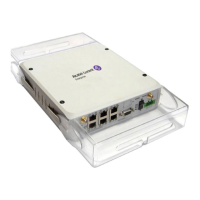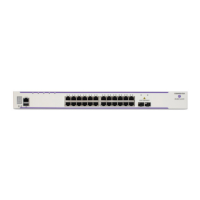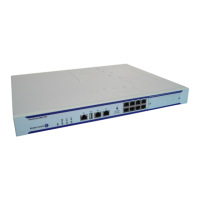Interface Configuration
7750 SR OS Interface Configuration Guide Page 333
hold-time
Syntax hold-time time-value
no hold-time
Context config>port>ethernet>efm-oam
Description This command configures efm-oam operational transition dampening timers which reduce the
number of efm-oam state transitions reported to upper layers.
Default 0
Parameters time-value — Indicates the number of seconds that the efm-oam protocol will wait before going back
to the operational state after leaving the operational state. Note that the hold-time does not apply
if efm-oam moved from operational to link-fault.
A hold-time value of zero indicates that there should be no delay in transitioning to the
operational state. A non-zero value will cause the efm-oam protocol to attempt to negotiate with
a peer if possible, but it will remain in the send-local-remote-ok state until the hold time has
expired if negotiation is successful.
If efm-oam is administratively shutdown while it was in the operational state and then re-enabled
when a non-zero hold time is configured, efm-oam will not transition to the operational state
until the hold-time expires.
Values 0 — 50
mode
Syntax mode {active | passive}
Context config>port>ethernet>efm-oam
Description This command configures the mode of OAM operation for this Ethernet port. These two modes differ
in that active mode causes the port to continually send out efm-oam info PDUs while passive mode
waits for the peer to initiate the negotiation process. A passive mode port cannot initiate monitoring
activites (such as loopback) with the peer.
Default active
Parameters active — Provides capability to initiate negotiation and monitoring activities.
passive — Relies on peer to initiate negotiation and monitoring activities.
transmit-interval
Syntax [no] transmit-interval interval [multiplier multiplier]
Context config>port>ethernet>efm-oam
Description This command configures the transmit interval of OAM PDUs.

